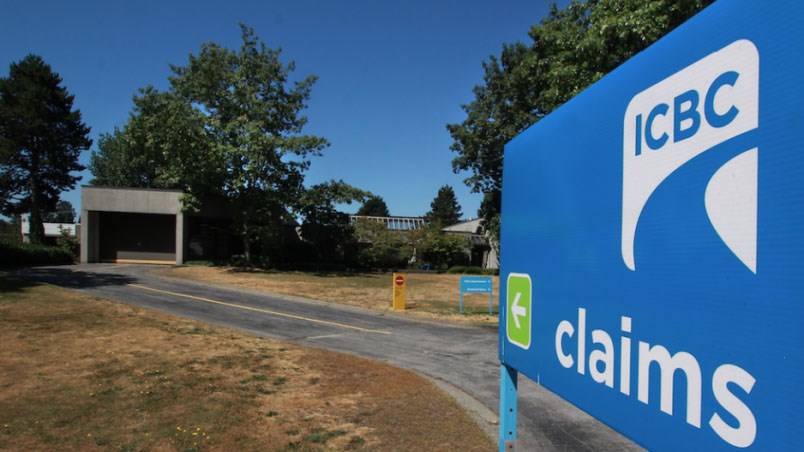The B.C. government says it intends to appeal a court decision striking down a recently enacted regulation that limits how much a plaintiff can be reimbursed for expert testimony and other expenditures arising from motor vehicle accident claims.
The regulation caps reimbursement of fees, such as those charged by experts, at 6% of either the total damages awarded by the court or of the amount agreed to in a settlement.
So, were someone to receive $10,000 for a personal injury claim, ICBC — the government-run insurance monopoly — would only have to reimburse up to $600 in such fees (for things such as medical opinions or crash reconstruction reports). Any costs over this amount will be borne by the plaintiff, essentially eating away at the award for damages they received.
The regulation was brought in as part of a suite of legislative changes to lower the government’s costs of litigating motor vehicle claims and thus lowering the cost of car insurance via ICBC.
“We have been clear that expensive, drawn-out legal battles were not working for British Columbians injured in car crashes. That’s why we made changes intended to reduce disproportionate expert reports, litigation costs and delays. We are appealing the court’s recent decision and will not comment further at this time,” Minister of Public Safety and Solicitor General Mike Farnworth told Glacier Media in an email statement via a spokesperson.
The case was brought forward by Thi Sau Le, a 77-year-old retiree claiming to have been struck by three vehicles on Jan. 3, 2020. Le’s lawyers estimate that, due to the number of different injuries involved, experts in up to eight different medical or therapeutic specialties will be needed to prove her damages, costing upwards of $50,000 and thus “significantly exceeding” 6% of any damage award.
As such, Le and the Trial Lawyers Association of B.C. petitioned B.C. Supreme Court claiming the regulation was wrong on both administrative and constitutional grounds.
Honourable Justice Lynn Smith ultimately deemed, in a July 8 ruling, the regulation was inconsistent with the enabling statute, the Evidence Act as well as the Constitution Act and “it is therefore of no force or effect.”
Smith found the case to be similar to when the government sought to limit each party in a motor vehicle action to three experts on the issue of damages, with only one report from each expert. That regulation was found to limit the court’s ability to hear evidence necessary to make a decision, Smith noted adding the 6% rule was in direct response to government no longer being able to limit experts.
In assessing the regulation on administrative grounds, Smith noted the governing statute gives the court discretion to allow for additional experts if not doing so would result in serious prejudice. However, the regulation capping reimbursement at 6% does not contemplate such discretion and is found to be inconsistent with the Evidence Act.
And, the regulation “creates a financial barrier or disincentive, and therefore possible further prejudice, to litigants asking the court to exercise that discretion,” wrote Smith.
Smith found further inconsistencies by noting the regulation also denies recovery of the cost of a liability expert’s attendance at trial.
On constitutional grounds, Smith noted the petitioners argued the regulation impeded access to justice because it will limit a person’s ability to seek expert opinions due to costs — a matter the government freely admits as an intended effect, Smith noted.
“Some plaintiffs will be unable to marshal all of the evidence necessary to prove all aspects of their case without sacrificing other reasonable expenses or necessary portions of their compensatory damages,” wrote Smith. “Others may have the evidence in the form of the necessary expert reports, but will be unable to proceed to trial because of the additional costs and risks associated with having those experts testify.”
Le and the association argued, wrote Smith, “that the impugned regulation hollows out that judicial power by creating situations where evidence the court requires cannot realistically be tendered because of the costs and risks imposed on the individual plaintiff.”
Smith agreed.
And so, as like the regulation limiting experts, Smith ruled the regulation of putting a cap on reimbursement “compromises and dilutes the role of the court, and encroaches upon on a core area of the court’s jurisdiction to control its process.”
With government’s decision to seek an appeal at the B.C. Court of Appeal, this is now one of three outstanding court matters related to government efforts to reduce litigation costs for ICBC. The others include challenges of a cap on damages (compensation) and the use of administrative tribunals for claims. The latter case has been won by the government in B.C. Court of Appeal, but the association is seeking leave to appeal to the Supreme Court of Canada.




